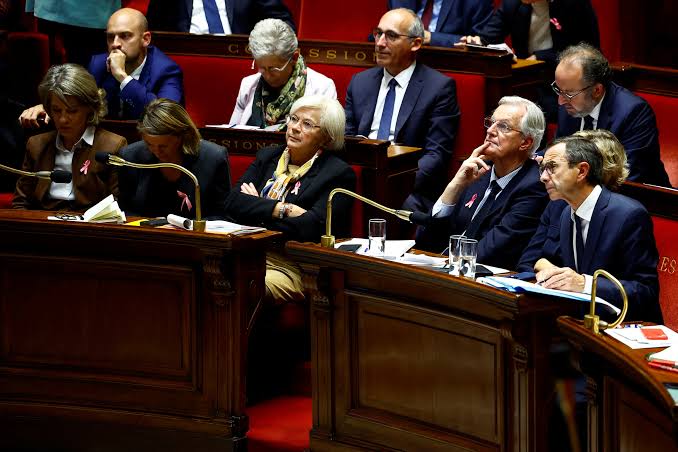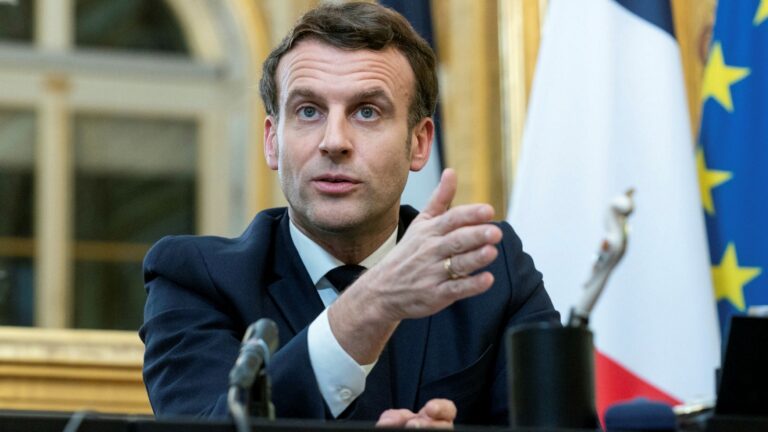
PARIS — French Prime Minister Francois Bayrou utilized special executive powers on Monday to secure the approval of the country’s 2025 budget without a vote from lawmakers, and now faces a no-confidence motion that could jeopardize the future of his 6-week-old administration.
Opposition parties were anticipated to submit the no-confidence motion later on Monday, with a vote scheduled in the National Assembly for Wednesday.
This could either finally grant France a budget or plunge the nation into further political and economic upheaval. Bayrou’s fate hinges on how many parties choose to support the motion. He is the fourth prime minister of France in just over a year.
French politics have been chaotic since President Emmanuel Macron called unexpected elections last year, resulting in no party gaining a majority in parliament. As one of the largest economies globally, the inability of France to pass a budget has alarmed investors and adversely affected the 20-country eurozone.
France is also being urged by the European Union to manage its substantial debt and deficit.
For Macron, this is an especially unfortunate time for France to be weakened. U.S. President Donald Trump is threatening new tariffs on the EU and has shown interest in Greenland, while Russia is becoming increasingly assertive in Ukraine.
After several weeks of discussion, French lawmakers on Monday reviewed the conclusions of a joint parliamentary committee regarding the state budget.
The previous administration collapsed due to its budget proposals, which included cutting 40 billion euros ($42 billion) in spending and increasing taxes by 20 billion euros. Bayrou’s updated version has responded to some concerns expressed by opposition lawmakers.
The joint committee maintained an additional tax on large corporations while raising the tax on financial transactions. Additionally, Bayrou consented to not reduce 4,000 positions in national education, as had been initially planned.
However, opposition parties argued that these measures fell short. Consequently, Bayrou, lacking a majority in the National Assembly, employed a constitutional mechanism known as Article 49.3 that permits the government to enact legislation without a parliamentary vote. This approach is infrequently used for budget approval.
The far-left party France Unbowed announced its intention to file a no-confidence motion based on Bayrou’s decision.
For the motion to succeed, it requires at least half of the votes from the 577-seat Assembly. France Unbowed’s proposal will likely gain support from Communist and Green lawmakers, although that won’t be sufficient.
The vote from the Socialists could prove crucial. The Socialist Party indicated on Monday that it would not vote to depose the Bayrou government because “it’s essential to provide France with a budget.” Nevertheless, some lawmakers might choose to disregard the party’s directives.
Far-right leader Marine Le Pen played a significant role in the previous government’s downfall. Her National Rally party constitutes the largest single group within France’s lower house of parliament and indicated it would instruct its lawmakers on how to vote on Wednesday.
Should Bayrou be ousted, Macron would have to look for a new prime minister again and assemble another government capable of achieving consensus on the budget.
A similar situation occurred in December, when a confidence motion related to budget disagreements compelled conservative Prime Minister Michel Barnier to resign.
Barnier had been appointed to resolve the political gridlock stemming from last year’s elections. However, his proposed austerity budget only exacerbated the divisions.
Macron then selected the seasoned centrist Bayrou, hoping he could bridge the existing divides.
Unlike Barnier, Bayrou has engaged in extensive negotiations with the Socialists aimed at establishing a non-aggression pact concerning the budget, where they would agree not to undermine each other.



